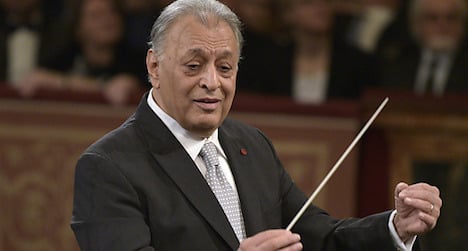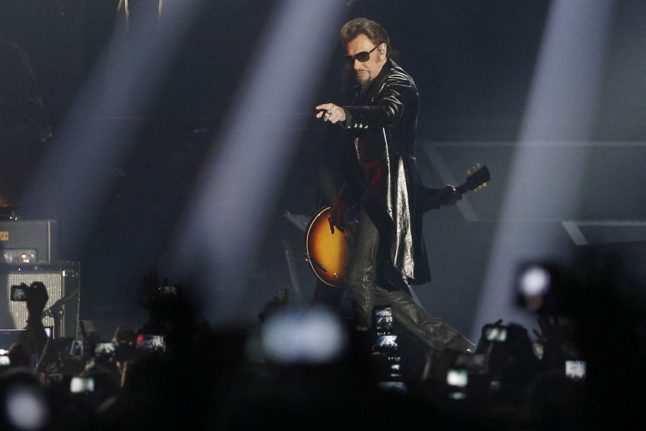MUSIC
New Year Concert success belies Nazi past
The Vienna Philharmonic New Year's Day concert was broadcast to over 90 countries around the world - but few know of its Nazi origins.
Published: 2 January 2015 18:52 CET

Conductor Zubin Mehta leads the Vienna Philharmonic for the fifth time. Photo: APA/HANS PUNZ
The Vienna Philharmonic on Thursday welcomed the new year with its traditional New Year's Concert in the Golden Hall of the Musikverein. On the podium this year was Zubin Mehta, a veteran of the classical music events.
For the fifth time the 78-year-old wielded the baton, making Strauss a cornerstone of the repertoire.
Also celebrating its 200th anniversary this year was the Technical University (TU), to which the "electro-magnetic" polka was dedicated.
As a special feature, soloist Shkelzen Doli from Albania led the orchestra into a four minute celebration of Albanian traditional music. The Vienna City Ballet also performed.
The broadcast of the concert by Austrian State broadcaster (ORF) was seen in at least 90 countries around the world, including for the first time in the Bahamas.
The New Year's Day concert tradition is not as old and revered as some may think. It started in 1939 as part of the Winterhilfswerk, an annual fundraising drive devised by the Nazi party to buy fuel for the needy in the coldest months of the year.
The Nazi party's cultural rulers saw the concert as a unifying event that could be broadcast live across the Third Reich. It was moved to New Year's Day in 1941, and Strauss continued to feature despite his Jewish ancestry.
Nazi sympathies were to continue in the orchestra until the 1960s, when its leaders honoured a former Nazi who had been released from prison.
It wasn't until 2013 that the orchestra finally cut its last ties with Austria's dark past by revoking the honours it had conferred in the past to Nazi leaders.
Url copied to clipboard!


 Please whitelist us to continue reading.
Please whitelist us to continue reading.
Member comments